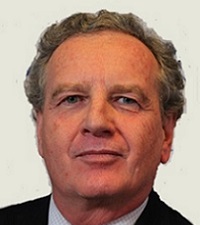 By George Rust, M.D., M.P.H.
By George Rust, M.D., M.P.H.
Twitter: @AHRQNews
As an academic primary care doctor and a clinician-teacher turned researcher, I’ve always thought of AHRQ as the research agency that “gets it.”
AHRQ gets the primary care generalist perspective — that the whole is often greater than the sum of its parts. AHRQ gets that approaching people as just a bag of organs, cells, and specific diseases often misses the complex interplay of clinical, behavioral, and social characteristics of patients as people. AHRQ gets that we need integrated research on whole people in real-world health care settings. And, AHRQ gets that solving complex multi-causal challenges like health disparities will need a science of intricate, multidimensional interventions.
So what a great opportunity it was to spend 6 months in 2015 at AHRQ, splitting my time between work at the Agency and work at the Morehouse School of Medicine, which was my academic home at the time. I was able to work with and learn from AHRQ leaders and staff, who are incredibly smart and deeply committed to building out the science of improving real-world health care for the whole patient, and taking those innovations to scale across the country. In short, I found an AHRQ team committed to making a difference in health for all of us.
However, as a community-oriented primary care researcher, I must confess to some level of concern when the AHRQ organization chart evolved over the past decade from having a Center for Primary Care Research to having a Center for Primary Care, Prevention, and Clinical Partnerships to now having a Center for Evidence and Practice Improvement (CEPI). Based on its authorizing language, AHRQ has always been charged with playing a central role in primary care, practice-based research. Where did primary care go?
The answer is everywhere! For many years, AHRQ has indeed supported primary care research, working to bring better health care to people in real-world settings. The good news is that even as primary care evolves, AHRQ has been leading the way, through programs too numerous to list, including EvidenceNOW and TeamSTEPPS for Office-based Care. Through various initiatives, AHRQ has helped to transform primary care practice in America and, in so doing, to improve care and outcomes for millions of Americans.
So what’s next? AHRQ will continue to support primary care research Agency-wide. But the Agency is also creating the National Center for Excellence in Primary Care Research (NCEPCR) to give primary care more focused attention. NCEPCR will be a nidus for collating, curating, and catalyzing primary care research not just from AHRQ, but across all of the Department of Health and Human Services. As the vision for this national center takes shape, you can help by giving your input to AHRQ leaders and staff.
The bottom line is that AHRQ is connecting the dots from better health care to better health outcomes for real people with real lives, amidst all of the clinical, behavioral, and social complexities that make us human. That’s AHRQ – research for whole people, in real-world settings, resulting in better health care and better outcomes for all Americans.
Note: George Rust M.D., M.P.H., joined the faculty at Florida State University College of Medicine in 2016, after completing 24 years of teaching, patient care, research, and program development at the Morehouse School of Medicine (MSM). He was the founding director of the MSM Faculty Development Program, and founding director of the MSM National Center for Primary Care. This article was originally published on AHRQ Views Blog and is republished here with permission.
